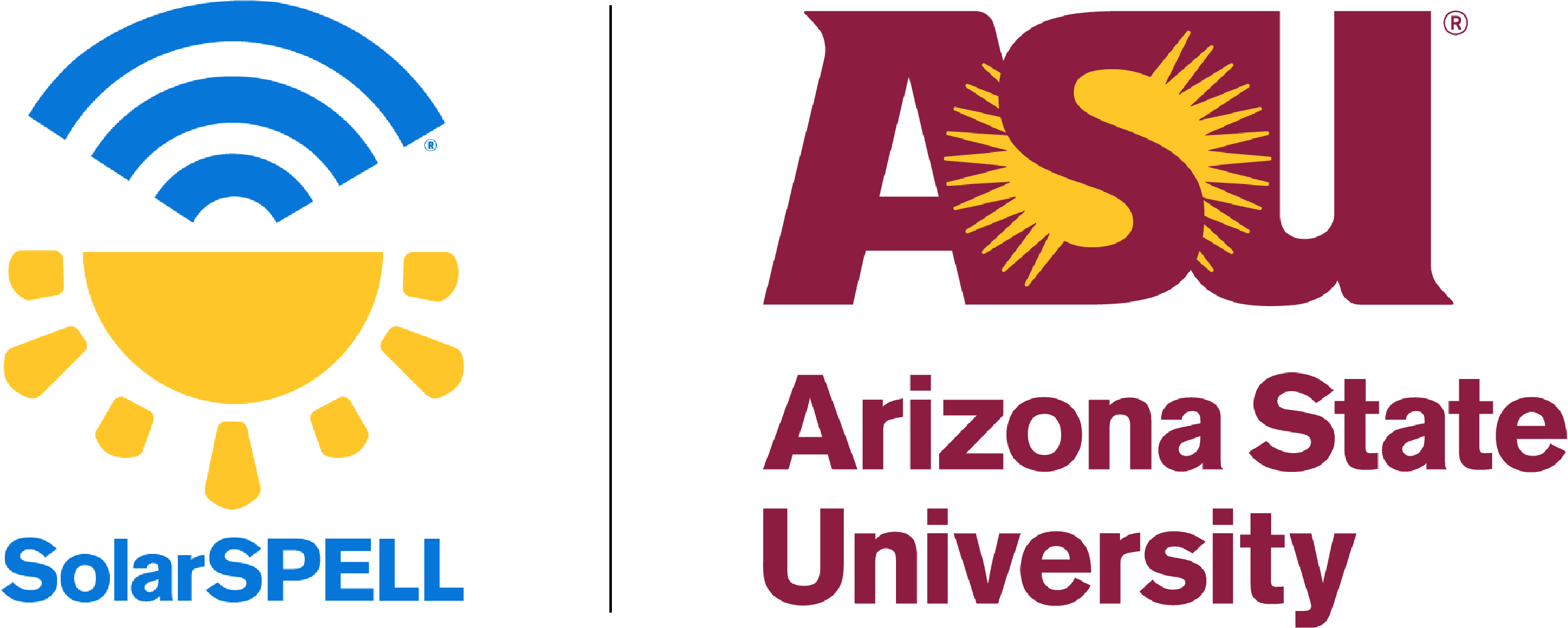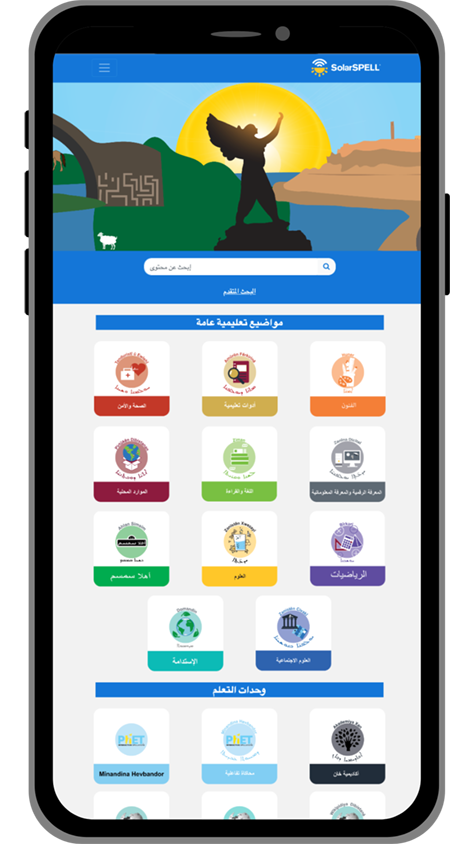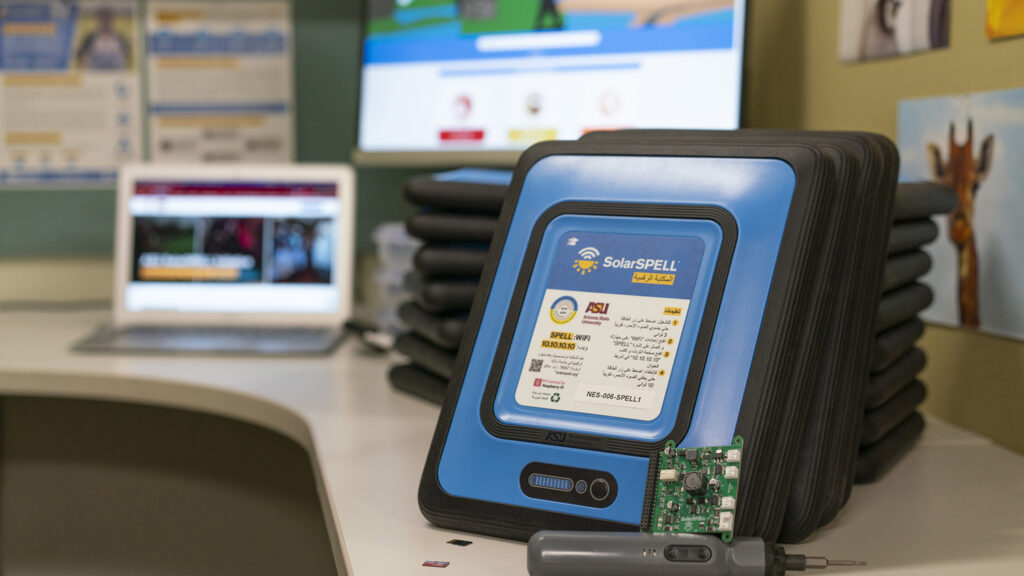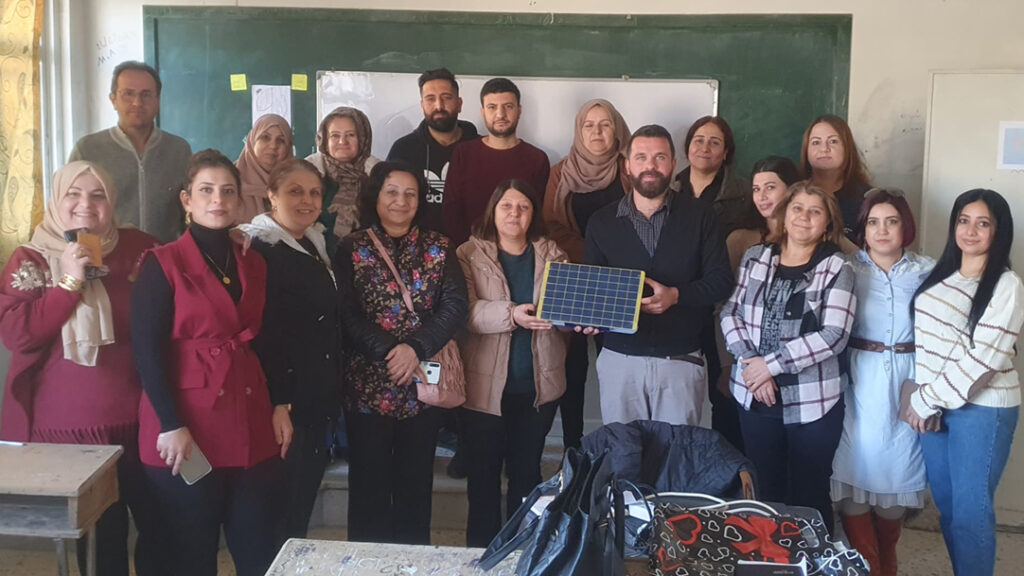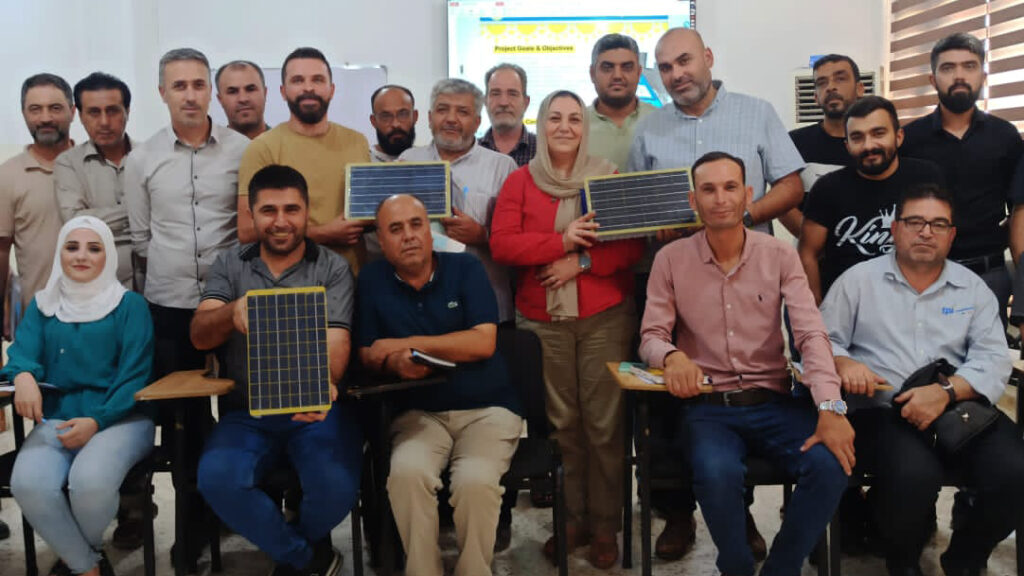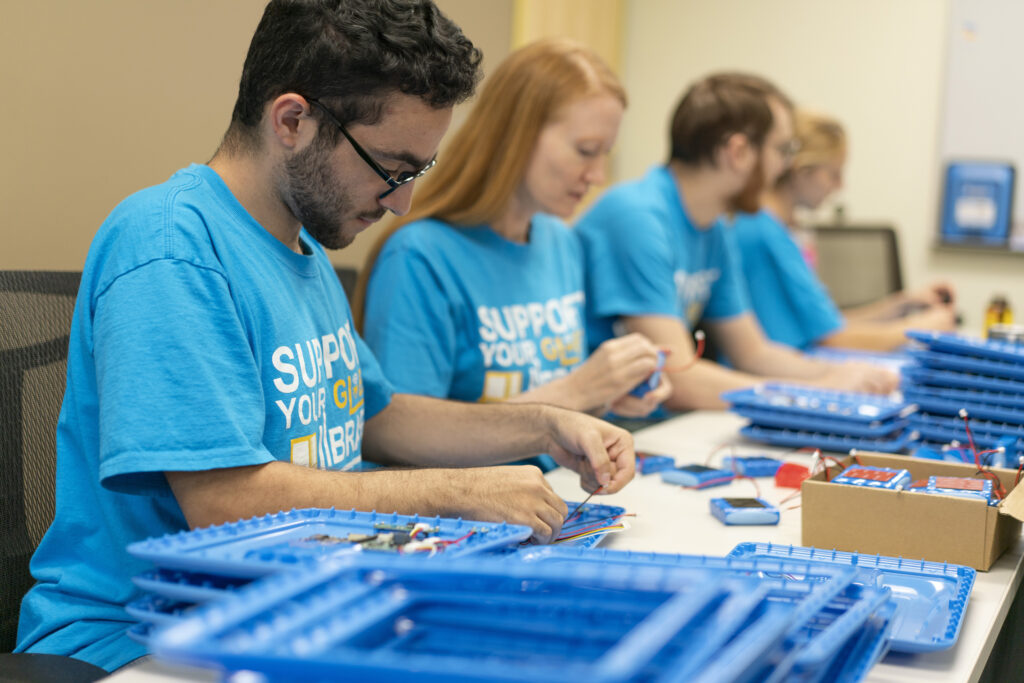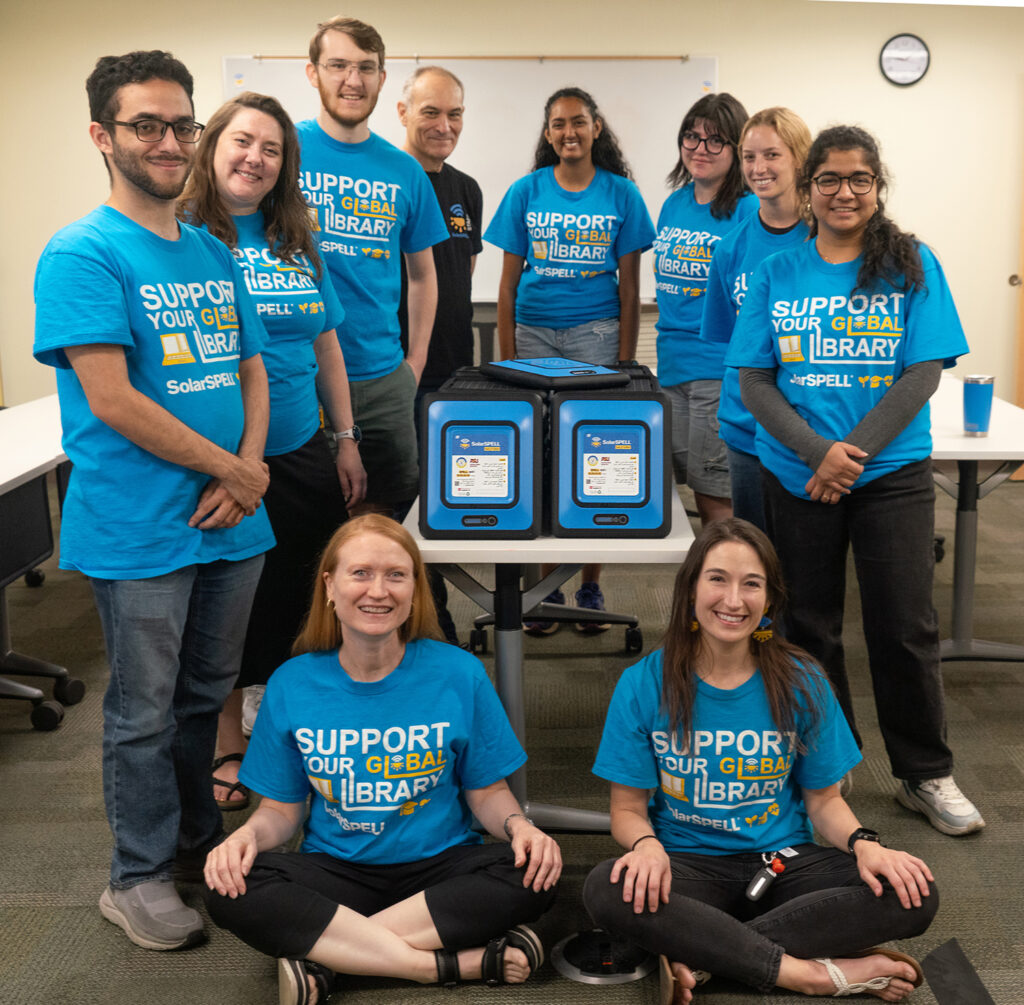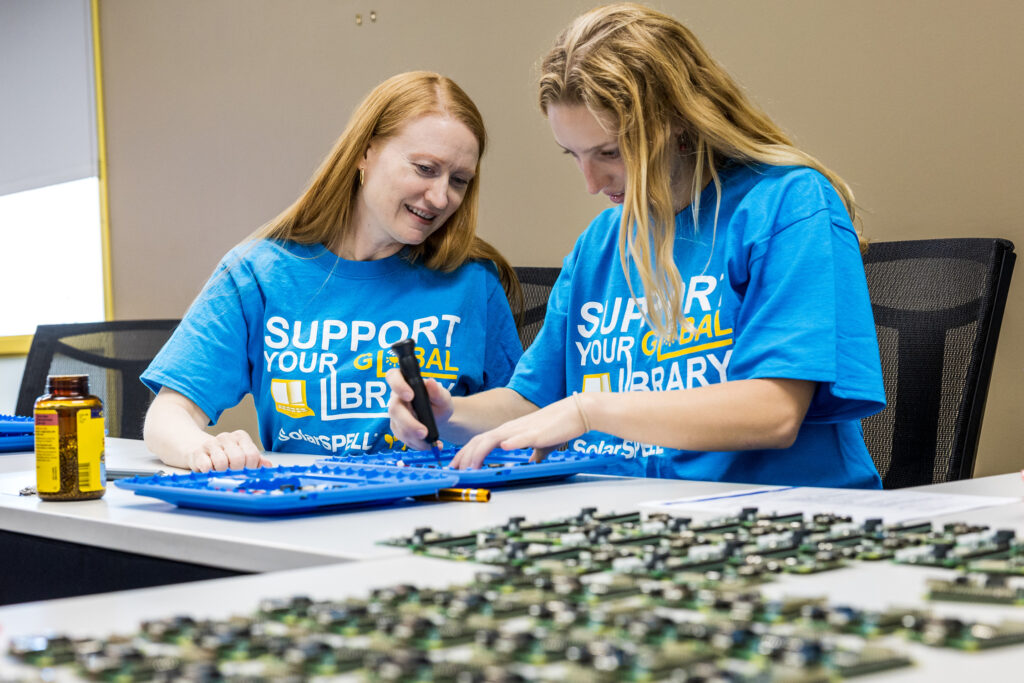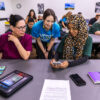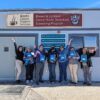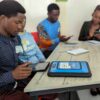Last school year — amidst a flurry of school repairs, curriculum expansion and teacher trainings — the Autonomous Administration of North and East Syria (AANES) piloted SolarSPELL libraries in three secondary schools throughout the region. More than 600 students and teachers in these pilot schools have now used the offline digital libraries to support their studies and professional growth, and after an overwhelmingly positive response, the program is now expanding to eight more schools.
To facilitate the use of SolarSPELL libraries in the classroom, the U.S. Department of State has committed funding to procure 400 tablets, which the AANES Commission of Education will distribute in January. Each participating school will receive 2 SolarSPELL libraries and 40 tablets.
The decision to expand the program was an easy one, especially after seeing the results of surveys and interviews conducted at the pilot schools. Of all teachers surveyed, 95% said that SolarSPELL supported their students’ education, and 81% felt more prepared and effective in their teaching. But most encouraging was the feedback that the libraries fostered self-guided learning and curiosity.
According to one respondent, “The SolarSPELL library has improved my students’ ability to search for information and has enhanced their confidence in self-guided research.” And 95% of teachers agreed that their students were better able to conduct research thanks to SolarSPELL.
So far the most popular content on the library has been the PhET interactive science modules, Voice of America’s Let’s Learn English module and the educational video series created by the AANES Commision of Education, which features local teachers.
The ASU SolarSPELL Initiative first began collaborating with AANES in 2021 to develop the world’s first offline, digital Arabic-language education library. As usual, we turned to university students to power our search for quality, relevant content to include. But curating this collection proved to be a unique challenge.
“When we started finding materials for the library, it was hard to find open educational resources that we could download and use again and again,” said Lubna Alsaka, an ASU alum (Global Technology and Development [GTD], 2021) who served as a digital collections intern at SolarSPELL.
While she and team member Osamah Naji (GTD, 2021) were able to find plenty of educational materials in Arabic, almost none were open access. In fact, few had any copyright information listed at all. And, Lubna said, when she reached out to the organizations to ask about how their content was licensed, they often weren’t sure.
The experience led them to write a paper, published earlier this year in the Electronic Journal of e-Learning, exploring the barriers slowing adoption of open educational resources (OER) in resource-constrained locations. The study is the first in the field of open e-learning to focus on OER intended for primary and secondary level education across the Arab region, or to examine OER’s potential to be used in an offline environment.
Even with this challenge, our team was able to develop a robust collection that contains resources in Arabic, Kurdish and Syriac and is searchable in all three languages. To our knowledge, this library is still the only offline, digital, Arabic-language library in the world.
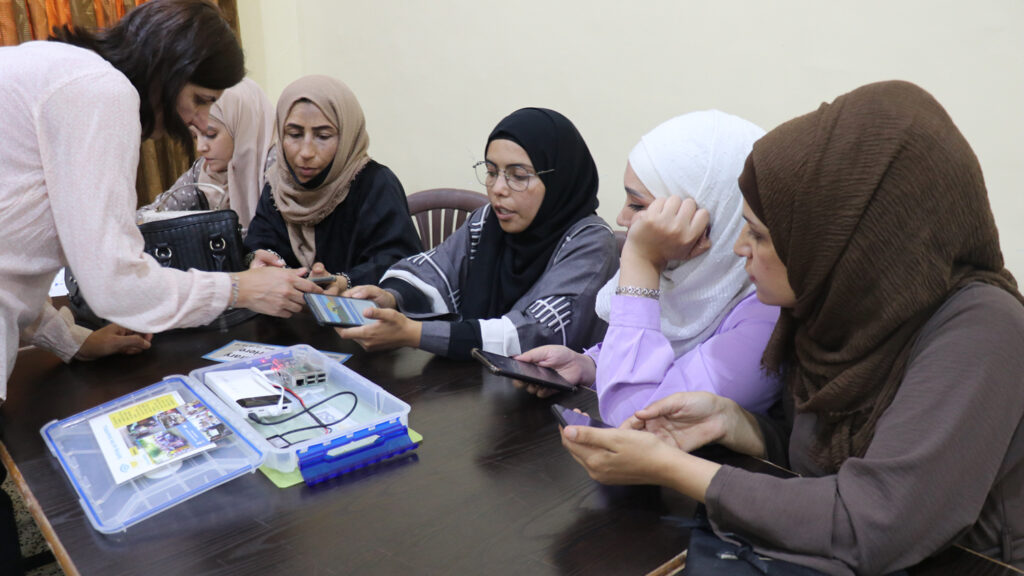
Photo courtesy of AANES Commission of Education
“The SolarSPELL library has improved my students’ ability to search for information and has enhanced their confidence in self-guided research.”
Since hosting our partners last April for an extended train-the-trainer, we’ve been hard at work improving the Middle East Education Library, adding and tagging new resources and reorganizing existing content to better meet teachers’ and students’ needs. In total we have added more than 650 new items to the library, including 450 educational videos created by the AANES Commission of Education.
On October 4, SolarSPELL hosted a Build Day with the new hardware design, inviting current and former student interns to help us build 50 SolarSPELL libraries. Twenty of those libraries are currently en route to North and East Syria.
“Build Day was, in my opinion, the peak of my time at SolarSPELL,” said Majd Salti, an ASU Computer Science student who’s played a key role in updating and improving the Middle East Education Library this semester.
“Sitting alongside all the amazing people who’ve worked to make this dream come true made my own dream come true. I can’t wait to see the pictures of kids in NE Syria learning their math or sciences using the new SolarSPELL libraries.”
Our partners in AANES have ambitions to expand this program to 200 schools, making SolarSPELL libraries available to tens of thousands of teachers and students. As for our team, our ambitions extend even further.
“We aim to support educators and students throughout the Middle East, and in all regions where the internet is too expensive, unreliable or inaccessible,” said SolarSPELL co-founder and co-director Laura Hosman. “Both by building SolarSPELL libraries with and for more communities, but also by sharing what we’ve learned with other initiatives and continuing to advocate for open educational resources and offline technology.”
The ASU SolarSPELL Initiative empowers offline communities globally by providing localized libraries and building the 21st century skills that people need to make informed decisions, increase their self-reliance and improve their quality of life.
